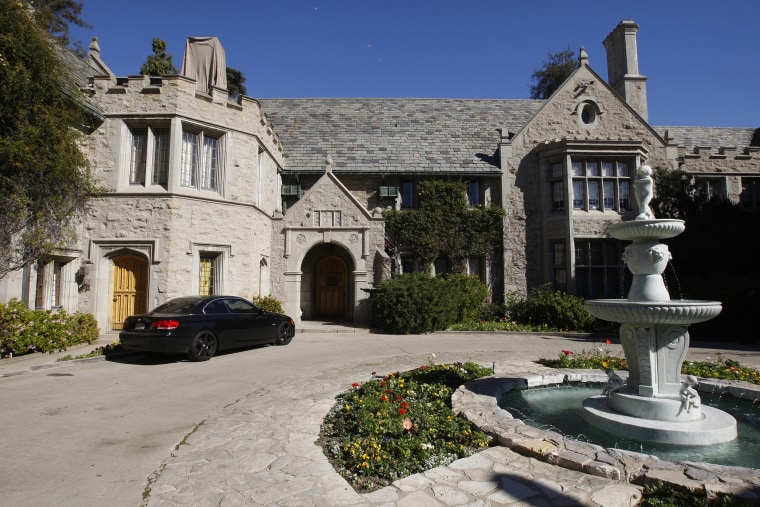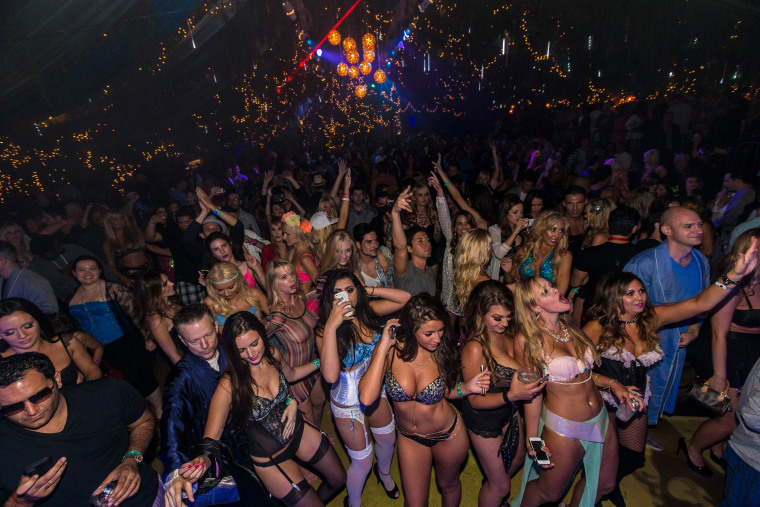Hugh Hefner's swinging Los Angeles party pad will be forever remembered as the Playboy Mansion, where the adult entertainment mogul worked and played for more than 45 years.
But the fate of the hedonistic haven following the 91-year-old Playboy founder’s death on Wednesday is now in the hands of its current owner — Hefner's next-door neighbor.

That neighbor, Daren Metropoulos, 33, scion of the Greek billionaire Dean Metropoulos and the co-owner of Twinkies-maker Hostess Brands, bought the sprawling, 20,000-square-foot home in August 2016. He paid a reported $100 million — knocked down from an earlier $200 million asking price.
As a stipulation for the sale, Metropoulos agreed to allow Hefner and his wife, Crystal Harris, to continue to live at the estate in the affluent Holmby Hills neighborhood until his death, according to a statement at the time. (Hefner had paid $1.1 million for the property in 1971.)
Metropoulos, who was once photographed at a Playboy Mansion party with Snoop Dogg in 2012, had already bought the sister property next door from Hefner in 2009, according to The Los Angeles Times. He paid $18 million for that 7,300-square-foot home.
Metropoulos said in a statement Thursday that he simply wanted to remember his neighbor and friend as "a visionary in business, a giant in media and an iconic figure of pop culture whose legacy will leave a lasting impact."
With the death of Hefner, future plans for his famed fantasyland — which includes the mansion, a private zoo, a grotto, an expansive pool and tennis courts — remain unclear.
What is known is that Metropoulos intends to bring his properties together and use the larger home, which was built in 1927 and which he referred to last year as "one of the most iconic properties in the world and the crown jewel of Holmby Hills."
Related: Tributes for Hefner Pour in After Death of Playboy Founder
"I look forward to eventually rejoining the two estates and enjoying this beautiful property as my private residence for years to come," he previously said.
Metropoulos also gave a nod to the Playboy Mansion's Gothic Tudor style, which he said Hefner "imbued ... with a rich and storied legacy."
The house is filled with wall-to-wall photographs of celebrities and headline makers who've made visits. Its 29 rooms include space for poker tables and pinball machines, and a so-called van room — meant to resemble the back of a 1970s van with a mattress hidden underneath the floor.
"I feel fortunate and privileged to now own a one-of-a-kind piece of history and art," Metropoulos added.
The home was prominently featured in Hefner's E! reality show, "The Girls Next Door," and has been the scene of countless movies and TV series, from "Charlie's Angels: Full Throttle" to HBO's "Entourage."

It was also a place for lavish parties, including his annual Midsummer Night's Dream soirée and Hollywood premieres that have attracted the likes of Ben Stiller, Tony Bennett, Charlize Theron, the Kardashian clan and former Playboy Playmate Pamela Anderson.
But so far, those who know Metropoulos have told the press — for better or worse — that he has no intention of ramping up the home as a personalized den of debauchery.
PHOTOS: Hugh Hefner — 60 Years With America's Urbane, Pipe-Smoking Rake
"I assure you, his interest in the Playboy Mansion is very pure," Bill Toler, the chief executive of Hostess, told The New York Times last summer. "He's not the new Hugh Hefner. That's just silly."
In an interview with The Wall Street Journal, before the sale went through, Metropoulos was equally adamant that he doesn't want to tear up the property. Any major work or changes would be under the eye of the local property owners association.
"The heritage of this property transcends its celebrity, and to have the opportunity to serve as its steward would be a true privilege," Metropoulos said.
